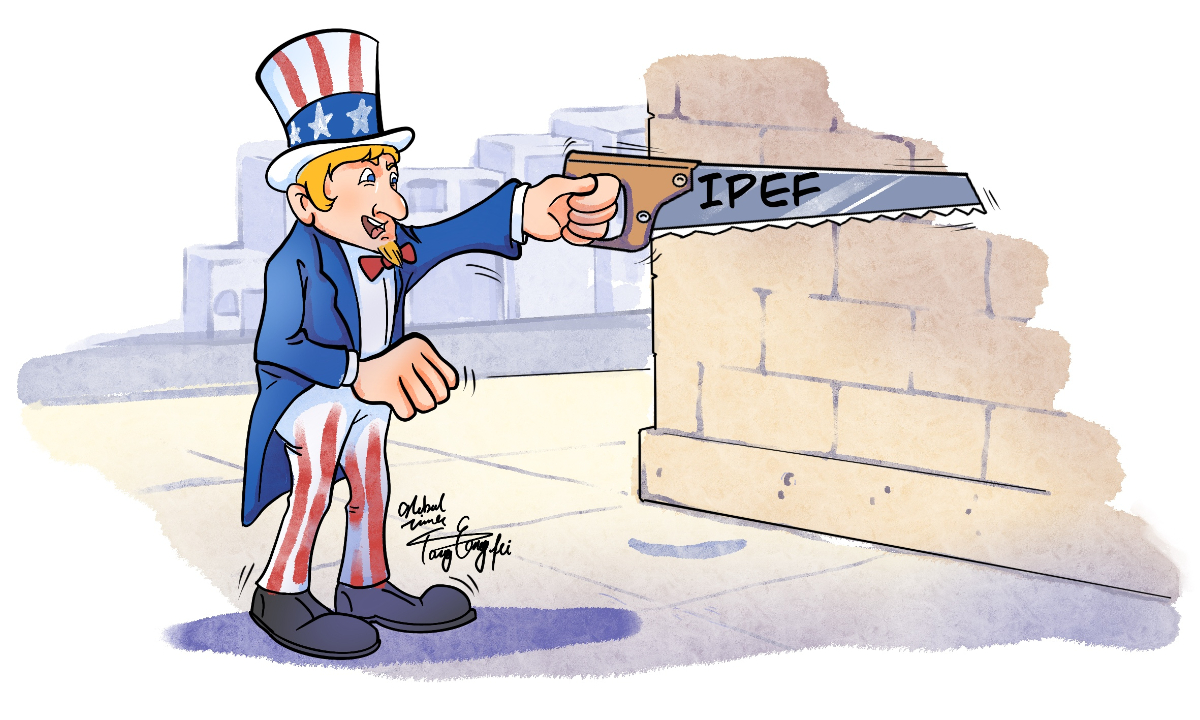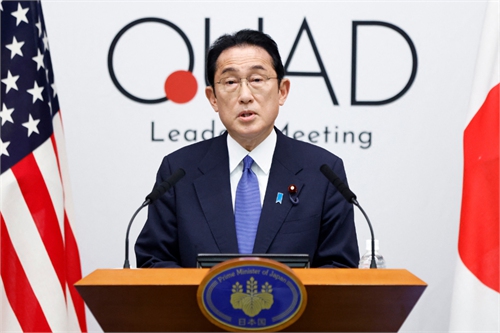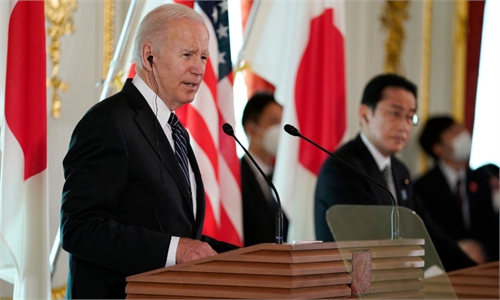
Illustration: Tang Tengfei/Global Times
China has outpaced Japan to become the most important partner of Association of South East Asian Nations (ASEAN), as viewed by the residents of ASEAN countries, several Japan media outlets reported, citing a government opinion poll released on Wednesday.
Among 2,700 survey respondents from ASEAN countries, 48 percent chose China, among G20 members, as their "important partner in the future" while 43 percent chose Japan and 41 percent favored the US, the poll commissioned by Japan's foreign ministry showed.
It marked the first time that China has ranked first since Japanese government started the survey in 2015, Kyodo News reported. Citing a Japanese Foreign Ministry official, the report said that the result may reflect "China's deepening ties with and increasing its clout in ASEAN through 'vaccine diplomacy' in providing COVID-19 vaccine shots to developing nations."
In fact, it is not a surprising result given that China and ASEAN members have seen increasingly deepening cooperation throughout the past decades. Coming at a time when US President Joe Biden has just announced a so-called Indo-Pacific Economic Framework (IPEF) on Monday during his visit to Japan, the poll result speaks volumes for the solid foundation and promising prospect of the cooperation between China and Southeast Asian countries.
In addition to the vaccines cooperation which reflects the friendship between the two sides, bilateral trade between China and the ASEAN has soared by 85 times since the two sides established their dialogue relations 30 years ago, Xinhua News Agency reported in July 2021. According to data from China's Ministry of Commerce, China has remained ASEAN's largest trading partner for 13 consecutive years, with two-way trade hitting a high record in 2021 of $878.2 billion.
By the end of 2021, two-way investment between China and ASEAN totaled about $300 billion. In addition, many ASEAN members have joined the China-proposed Belt and Road Initiative (BRI), under which many cooperative projects have been carried out and delivered tangible benefits to local economies.
The China-Laos Railway, a landmark project of high-quality BRI cooperation, started operation in last December. Per analysis by the World Bank, "the railway connecting Lao PDR (and later Thailand, Malaysia, and Singapore) to the vast BRI network could potentially increase aggregate income in Laos by up to 21 percent over the long term."
Moreover, the newly implemented Regional Comprehensive Economic Partnership (RCEP) has paved the way for a faster integration of value chains within the deal members, not to mention the trade growth potential brought about by the world's largest free trade deal. After RCEP takes effect, over 90 percent of commodity trade between approved members will eventually be tariff-free. The RCEP economies will account for 50 percent of the global economy by 2030, economists forecasted.
Such high potential cooperative prospects are subject to envy by the US politicians. The US officials have been lining up to visit Southeast Asia since Biden took over the White House, in their sinister attempt to drive a wedge between China and ASEAN countries.
However, the Biden administration's rhetoric and actions, like launching a so-called IPEF, are driven by geopolitical motivations, which might not bring any tangible results to regional economies as it lacks solid economic foundation. IPEF is a political tool to be used by Washington to impede China's economic rise and to divide Asia.
From industrial supply chain, trade, to infrastructure cooperation, China has developed many advantages comparing to the US and other developed nations. ASEAN countries know very well that getting embroiled in the US' geopolitical games won't help their own interest, and maintaining a steady and peaceful environment in the region is crucial for the long-term development of their economies.
The author is an editor with the Global Times. bizopinion@globaltimes.com.cn



